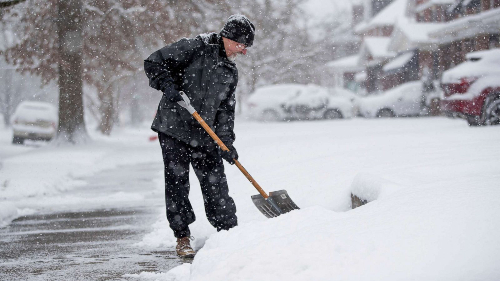
The following post was contributed by Patricia Márquez, Dean of the Joan B. Kroc School of Peace Studies.
As I am sure you know, just a couple of weeks ago, Texas faced a massive blackout for days in the midst of a bitter freeze. The stories of hardship and suffering were devastating. Who could imagine the citizens of Texas would be forced to heat snow to flush their toilets? This was a failure at a societal level.
At the same time, there were incredible acts of community support for people in distress. Private Individuals took the initiative to organize bringing drinkable water to those housebound. Others created phone banks to check on the welfare of seniors living alone. The acts of generosity and kindness are awe-inspiring. But the ordeal left us, even those of us who were not impacted, feeling traumatized, abandoned and understandably confused. How does a breakdown like this happen in the wealthiest and most resourceful country on the planet?
These types of social failures increase distrust of existing institutions. And this distrust has potential consequences that are hard to foresee. It is clear this is not a situation, particularly coming amidst a pandemic that is almost a year old, resolved by simply restoring electricity to Texas. What happened in Texas is an example of how badly we need new institutions and leadership prepared to prevent crises as well as provide more effective responses when they happen. Sadly, Texas is not a one-off aberration. The future will require new paradigms, new thinking and new social architecture in the U.S. and around the world. With a planet that will soon reach nine billion people, we must proactively build thriving communities with new thinking, organizations and social systems. At the Kroc School, we design educational programs to prepare the innovative Changemakers needed today and the years to come.
At its heart, peace and justice education is focused on exploring new academic areas that prepare the professionals of change – the Changemakers – that our times demand. If we are going to solve social injustice, systemic racism, growing inequality, political polarization, ethnic conflict, natural and man-made disasters, and community trauma (just to list a few), our society requires people with new ways of thinking, knowledge, and skillsets. It requires people with capabilities involving problem-solving, community organizing, resilience building, and trauma healing.
As we continue to develop academic programs to prepare Changemakers, it is imperative that we spread the word. We trust the adage, “If you build it, they will come,” but it helps a lot if the global community of those seeking to create change knows the Kroc School exists and understands what it has to offer.
To that end, last month we launched a new Kroc School website showcasing our programs. The website is focused on speaking to those seeking to become Changemakers. Because images often speak louder than words, we have paid special attention to visuals conveying what peacebuilding and social innovation in action look and feel like. The new website chronicles the journeys and achievements of Kroc School Changemakers as well as our Women PeaceMakers and hundreds of partner institutions. It reflects our thinking that our success as a school of peace and justice is measured in terms of the impact Kroc School alumni create locally and abroad.
The Kroc School's new website which you can view here.
The Kroc School’s impact is limited if our learning resources remain only in the hands of a few. So, we have very intentionally designed the new website to share our work with the wider world, making it more easily accessible and downloadable to all. This includes the work of Kroc School professors in areas like human trafficking, technology and social change, the global illicit gun trade, social entrepreneurship and education, and environmental justice. It also includes the knowledge we generate with partners in the field in issues of gender and peacebuilding, reducing violent conflict in cities worldwide, and solving our border issues.
Our founding philanthropist, Mrs. Kroc, saw our majestic building at USD as an edifice dedicated to peace and justice. She envisioned it as a hub serving to connect and educate the community of San Diego/Tijuana through events, exhibits, and other engagement opportunities. The new website advances her vision in its design, making it easier for the broader community to learn about program offerings and opportunities to participate at the Kroc School.
We thank everyone who contributed to this most important project. The new website was the result of a collective process involving university staff, students, alumni, and our partners worldwide. The website is our window to the world and we invite everyone to explore, share, and enjoy a new experience at the West Coast capital of peace education. We hope it will be an inspiration to come together to re-shape the world we all wish to live in.

About the Author
The Joan B. Kroc School of Peace Studies (Kroc School) at the University of San Diego is the global hub for peacebuilding and social innovation. Founded in 2007, the Kroc School equips the next generation of innovative changemakers to shape more peaceful and just societies. We offer master's degrees in peace and justice, social innovation, humanitarian action, conflict management and resolution, and a dual degree in peace and law — programs that have attracted diverse and dynamic students from more than 50 countries. In addition to our graduate programs, the Kroc School is home to the Kroc Institute for Peace and Justice (Kroc IPJ). Founded in 2001, the Institute supports positive change beyond the classroom. Through groundbreaking research, experiential learning, and forward-thinking programs, the Kroc School and Kroc IPJ are shaping a future in which peaceful co-existence is the new normal.






